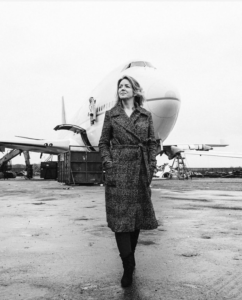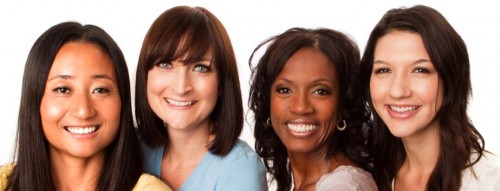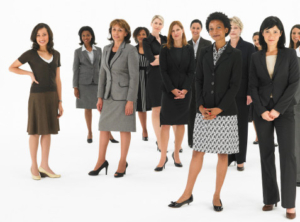 By Nicki Gilmour, Executive Coach and Organizational Psychologist
By Nicki Gilmour, Executive Coach and Organizational Psychologist
This International Women’s Day 2018 has positive messages regarding professional women’s careers. Messaging that women can go far and fast has never been stronger and some companies are making strides promoting women. Work for good companies, functional teams and good managers as happiness can happen at work and if you are not happy then take control of it.
Every day is women’s day on theglasshammer.com as we don’t just talk about what needs to happen (systemically and or individually) one day per year. For eleven years we have been asking you to #pressforprogress and we have been doing it too. By creating visibility of all types of professional women, celebrating women at work and reducing bias and stereotypes via our training and coaching as well as editorial articles based on research. It has not been easy work and we thank those of you who have persisted in trying to change the world around us.
So on this day and month we choose to look more broadly at the world to understand the narrow issue of advancing professional women at work. Why? Because we understand that the culture outside the office affects the culture inside the office.
International women’s day is a third world and first world issue as we see from the horror stories from near and far regarding how men’s needs are placed high above the human rights and freedoms of women. From #metoo in the States to tribal honor killings in India and Pakistan, the one consistent element seems to be that men are always given more power than women. And, if the small minority of bad guys chose to wield that power in an evil way (thankfully so many men don’t) the system and the cultural norms in first and third worlds are remarkably similarly weighted against women.
At least we are talking about inequities now in a way that never before have been up for discussion. But, how do we change things? Change is not easy as it requires systems, structures and policies (and their enforcement) to change. Behavior is like a river running its course, it just happens naturally and having to create a new pathway without a reason to do so is possible, but hardly probable without perturbation.
Sometimes we all need to feel uncomfortable in order to change. Nilofer Merchant writes in the HBR blog to Listen more and talk less to change someone’s mind. At first, reading this piece I felt sheer horror that girls were being traded for compensation. I felt my values being challenged on every level and I feel a rejection of the culture being described in the scenario to the point that I wondered why I was still reading it. Then, I read on. Ironically, the story was about listening without giving an opinion, in service of having people get to a change point of view themselves. Having no verbal opinion can be powerful in some cases where cultural norms will squash dissent or people that aren’t straight men.
This concept really stuck with me, not least because change is about exactly those three elements – culture, values and behavior and Warner Burke Professor of Organizational Psychology and Change Leadership always says “You cannot change the culture by changing the culture.”
In the continued work of finding a true level playing field, all of us need to understand how to challenge ourselves before we can challenge others.
The sheer idea of not having an opinion and voicing it is contra to most advice we see and having a voice for yourself and for the voiceless is a strategy that cannot be dismissed. But, isn’t it interesting as a career strategy to let people think its their idea?
If like me, you are fairly ambivalent about this then thats ok too! This is the time to have a voice because 2018 is a turning point for people and specifically women to be heard and believed. At work, there is a range of situations where you still aren’t being heard, from meetings where the guy next to you repeats exactly what you said, to no win conversations where power plays are present. My favorite books on this are by Deborah Kolb and Judith Williams who wrote Everyday Negotiations and by dear friend Carol Frohlinger’s and Lois Frankel’s Nice Girls series.
Have a good month, enjoy the #IWD celebrations!




